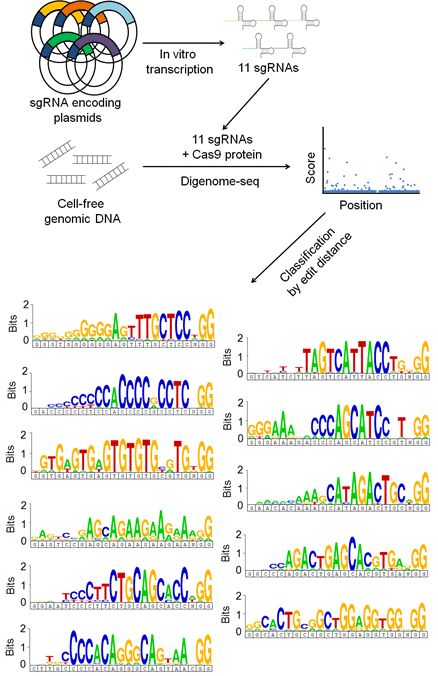주메뉴
- About IBS 연구원소개
-
Research Centers
연구단소개
- Research Outcomes
- Mathematics
- Physics
- Center for Underground Physics
- Center for Theoretical Physics of the Universe (Particle Theory and Cosmology Group)
- Center for Theoretical Physics of the Universe (Cosmology, Gravity and Astroparticle Physics Group)
- Dark Matter Axion Group
- Center for Artificial Low Dimensional Electronic Systems
- Center for Theoretical Physics of Complex Systems
- Center for Quantum Nanoscience
- Center for Exotic Nuclear Studies
- Center for Van der Waals Quantum Solids
- Center for Relativistic Laser Science
- Chemistry
- Life Sciences
- Earth Science
- Interdisciplinary
- Center for Neuroscience Imaging Research (Neuro Technology Group)
- Center for Neuroscience Imaging Research (Cognitive and Computational Neuroscience Group)
- Center for Algorithmic and Robotized Synthesis
- Center for Genome Engineering
- Center for Nanomedicine
- Center for Biomolecular and Cellular Structure
- Center for 2D Quantum Heterostructures
- Center for Quantum Conversion Research
- Institutes
- Korea Virus Research Institute
- News Center 뉴스 센터
- Career 인재초빙
- Living in Korea IBS School-UST
- IBS School 윤리경영


주메뉴
- About IBS
-
Research Centers
- Research Outcomes
- Mathematics
- Physics
- Center for Underground Physics
- Center for Theoretical Physics of the Universe (Particle Theory and Cosmology Group)
- Center for Theoretical Physics of the Universe (Cosmology, Gravity and Astroparticle Physics Group)
- Dark Matter Axion Group
- Center for Artificial Low Dimensional Electronic Systems
- Center for Theoretical Physics of Complex Systems
- Center for Quantum Nanoscience
- Center for Exotic Nuclear Studies
- Center for Van der Waals Quantum Solids
- Center for Relativistic Laser Science
- Chemistry
- Life Sciences
- Earth Science
- Interdisciplinary
- Center for Neuroscience Imaging Research (Neuro Technology Group)
- Center for Neuroscience Imaging Research (Cognitive and Computational Neuroscience Group)
- Center for Algorithmic and Robotized Synthesis
- Center for Genome Engineering
- Center for Nanomedicine
- Center for Biomolecular and Cellular Structure
- Center for 2D Quantum Heterostructures
- Center for Quantum Conversion Research
- Institutes
- Korea Virus Research Institute
- News Center
- Career
- Living in Korea
- IBS School
News Center
|
New Tool for Efficiently Validating the Accuracy of CRISPR-Cas9 Reactions - IBS Researchers create multiplex Digenome-seq to find errors in CRISPR-Cas9 processes - February 4, 2016 CRISPR-Cas9’s popularity continues to grow ever since its first use in genome editing in January, 2013. What makes CRISPR-Cas9 so remarkable is its astonishing efficiency and availability; relatively speaking, it is easy to use. Last year, scientists at the Center for Genome Engineering within the Institute for Basic Science (IBS) published a paper in Cell Stem Cell describing how they corrected an inverted gene sequence which effectively cured a type of Hemophilia. The Jin-Soo Kim group at IBS has also used CRISPR-Cas9 to perform a process without using foreign DNA to modify crops. It is such an incredibly useful tool and holds so much potential for the future that it was the focus of the International Summit on Human Gene Editing in Washington DC in December 2015. The future of CRISPR applications is only limited by the imaginations of the scientists using it. CRISPR-Cas9 is an exceptional tool, but the technology isn’t perfect. When used, it sometimes produces insertions and deletions, known as indels, at unintended off-target sites. Since unintended gene cleaving could result in an unexpected mutation, it is crucial to detect any errors in the CRISPR-Cas9 process. On January 19th in Genome Research, the Kim team at IBS presented a tool they’ve dubbed multiplex Digenome-seq (digested genome sequencing), which can map out genome-wide specificities of several CRISPR-Cas9 nucleases simultaneously to find both intentional and unwanted indels quickly and cheaply.
First author Daesik Kim explains that “Digenome-seq differs from other cell-based methods in that it detects DNA cleavages in vitro, rather than in cells, using cell-free genomic DNA.” An advantage of using cell-free DNA is that it produces precise analysis results because chromatin, which is normally found in the cell, doesn’t interfere with the process. Also, because the DNA in question doesn’t need to be amplified en masse using PCR before investigation; Digenome-seq is easier, faster and cheaper to use than previous methods. Digenome-seq works by combining cell-free target DNA with Cas9 protein and sgRNA (single guide RNA) in vitro. The sgRNA leads the Cas9 to the target and off-target site on the DNA where it gets cleaved by the Cas9 endonuclease. In the study, researchers identified on- and off-target sites cleaved in vitro and measured indel frequencies at hundreds of off-target sites in cells which could potentially become unintended mutations. Their accuracy is then scored using a system the IBS team developed called the OTI (off-target effect index) which compares the ratio of off-target to on-target frequencies. Unlike previously used monoplex processes that can only work with one sgRNA at a time, multiplex Digenome-seq performs simultaneous analysis of numerous sgRNAs to detect all of their on-target and off-target sites simultaneously. This multiplex process is faster, more efficient and more cost effective than previous methods. In addition to its speed, Digenome-seq is able to detect more off-target indels than other methods like HTGTS or Guide-seq. IBS Director Jin-Soo Kim said “CRISPR-Cas9 is an incredible scientific breakthrough and will continue to be the research focus of biologists around the world.” He added that “This technique can be used to choose target sites with the least off-target effects, a method essential for therapeutic applications of CRISPR-Cas9.” With superior accuracy, cost savings and speed, multiplex Digenome-Seq appears to be the new standard for testing CRISPR-Cas9 specificity. Daniel Kopperud Notes for editors - References - Media Contact - About the Institute for Basic Science (IBS) |
|||
|
|
| Next | |
|---|---|
| before |
- Content Manager
- Public Relations Team : Yim Ji Yeob 042-878-8173
- Last Update 2023-11-28 14:20












